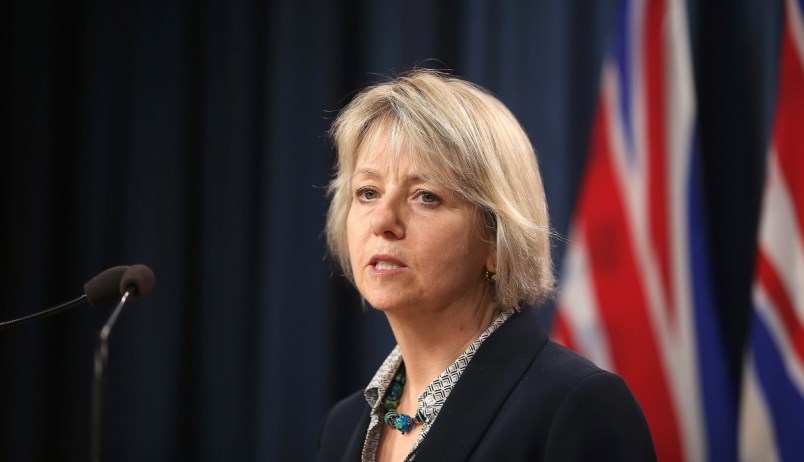Northern B.C had another new case of COVID-19 over the weekend, provincial health officer Dr. Bonnie Henry said on Monday.
No new cases were linked to the Site C work camp near Fort St. John, where a worker from Alberta is in quarantine after testing positive for COVID-19, Henry said.
The locations of the remaining four active cases was not disclosed. But on Sunday, the Haida Nation issued a statement saying there was a confirmed case on Haida Gwaii and enacting additional safety measures.
"We've had cases this weekend in all health authorities in the province," Henry said. "Most concerning, in the last week and a half we have seen growth (in the number of new cases), especially among young people."
Since Friday's update, there were 102 new cases of COVID-19 in B.C., bringing the province's total number cases up to 3,300 since the start of the pandemic. The total number of cases in northern B.C. since the beginning of the pandemic rose to 69, which doesn't include the worker at Site C who will be reported in Alberta.
Across the province there were 253 active cases in B.C. – including four northern B.C. residents, plus the Site C worker, Henry said. A total of 16 people were hospitalized with COVID-19, including four in intensive care.
No new deaths were reported on Monday, leaving the province's death toll at 189. No deaths in northern B.C. have been linked to the disease.
No COVID-19 patients in northern B.C. were hospitalized, according to information released by the B.C. Centre for Disease Control on Monday afternoon.
"We're are at a bit of a tipping point," Henry said. "We're starting to see an upward bend in our curve. What this shows is we do have the possibility of having explosive growth in our outbreak in British Columbia. We are at a place where we could see rapid transmission of this virus if we are not careful."
The reproduction rate – the number of new people each infected person infects – has risen above one, which is concerning, Henry said.
"We're starting to see people who are testing positive in the past few days having a large number of contacts," Henry said. "We can increase our contacts, we can increase our travel, but we need to do it safely."
Sixty cases in B.C. have now been linked to a series of parties and gatherings in Kelowna, she said.
The average number of contacts each diagnosed patient had is back up to around 11, where it was early in the pandemic, she said. Some people have had as many as 20 or 30.
As a reminder of why it's so important to stop the spread, Henry said roughly six per cent of British Columbians who contract COVID-19 die from the disease – higher than any cold or normal flu. But for vulnerable people, like those living in long-term care and assisted living homes, it can be much worse.
"We know that about one in five people in those situations will die, if they get COVID-19," Henry said. "The median age of those who have died is quiet elderly at 85."
The median age of all COVID-19 patients in B.C. is around 50 years old, she said. While B.C. hasn't had the same demographic shift seen in some other jurisdictions, there has been an increase in the number of new cases in people in their 20s and 30s.
"Young people work, and they have families and we will get spill-over," Henry said. "We are looking at what measures we can take that will make a difference in those high-risk settings. What we are trying to do is take the moderate approach so we don't have to go back to closing things down."
While younger adults are less likely to get seriously ill or die from COVID-19, she said, the province's COVID-19 survey showed they are more likely to have lost their job, be facing financial hardship and more likely to be suffering poorer mental health as a result of the pandemic.
"We know what we need to do, and we know we have the ability to do it in British Columbia," Henry said. "When we do these things, it works. We can have those social connections we all need. We can have our economic restart."



